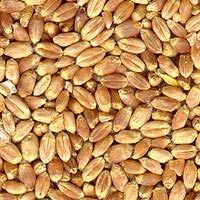 The Vijay Kelkar committee's recommendation to link foodgrain prices sold through ration shops with the minimum support price has stirred a debate.
The Vijay Kelkar committee's recommendation to link foodgrain prices sold through ration shops with the minimum support price has stirred a debate.
While many experts said the suggestion would go a long way in bringing down the annual food subsidy expenditure, they doubt the feasibility of the idea.
The Centre has shown little interest in the key suggestions of the panel, which recommends aligning food grains central issue price with MSP.
"The recommendations are good. However, you need to have certain subsidies to meet the requirement of a large section of the poor in a developing economy," a senior food ministry official said.
Chief Economist at CARE Ratings Madan Sabnavis said, "The whole idea of having CIP is to protect the poor. Its objectives are different from those of MSP. Linking both would mean capping subsidies. That would be impractical."
Others, however, find a lot of reasons in the panel's suggestions. "While CIP still goes by levels set in 2002, MSP has increased manifold since then.
"This has altered the ratio between the two in a big way. Looking at that, the panel recommendations seem most tangible," said Chairman of the Commission for Agriculture Costs & Prices and agriculture economist, Ashok Gulati.
When the Centre in 2001-02 froze CIP of wheat and rice for the below poverty line families at Rs 4.15 a kg and Rs 5.65 a kg, respectively, MSP for wheat was Rs 6.10 a kg and for rice Rs 5.30 a kg.
The ratio between CIP and MSP was 1:1 for rice and 3:5 for wheat during that period.
The ratio in 2011-12 stood at 1:2 for rice and 3:10
Thus, as the purchase price went up because of rising MSP, the sale price remained constant.
"The idea is to keep the ratios same, so that the food subsidy bill does not inflate," added Gulati.
In Budget 2012-13, the food subsidy swelled to Rs 75,000 crore from around Rs 9,200 crore (Rs 92 billion) in 1999-2000 -- a staggering rise of over 700 per cent in a decade.
Primary reasons have been heavy procurement of grain at high prices and increased distribution at cheap rates.
Every month, the government provides subsidised wheat and rice to some 65.2 million BPL and 110 million poverty line families.
"The panel's recommendations are balanced and important. . . you cannot go on distributing heavily subsidised food to the poor. It does not mean you increase CIP by 100 per cent.
"However, some hike is surely warranted," said Ramesh Chand, director of the National Centre of Agricultural Economics and Policy Research.
The Kelkar panel also suggests the Centre bring down the administrative cost of procurement and storage of foodgrain to cut subsidy further.
This cost is borne by the Food Corporation of India (FCI).
"Many people can blame the high administrative cost of FCI for the rising subsidy. Despite that, I feel linking MSP with CIP will be an important step," Gulati said.
The panel also suggested removing the system of levy sugar, which is selling the sweetener in ration shops.
At a time when a plan to raise prices of sugar sold through the PDS was deferred in the Cabinet, there might not be many takers for this recommendation, experts say.











